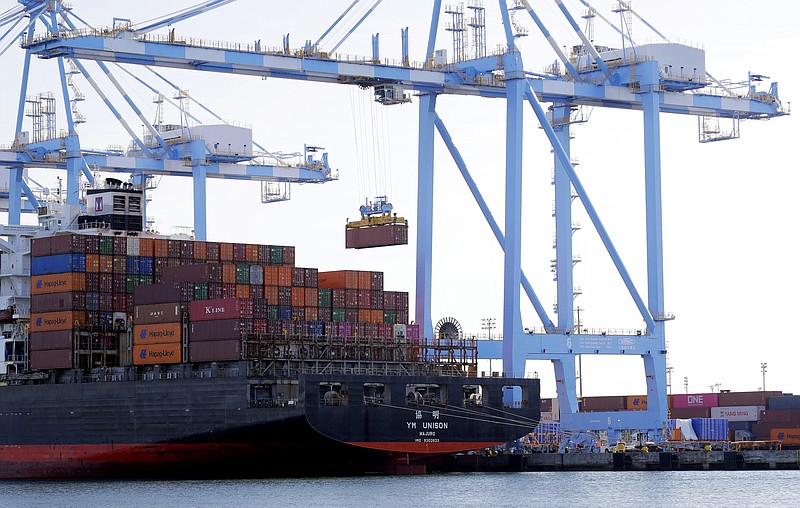The U.S. trade deficit fell in November to the lowest level in more than three years as U.S. exports rose while imports declined, putting the country on track to see the first annual decline in the trade deficit in six years.
The Commerce Department said Tuesday that the gap between what America sells and what it buys abroad narrowed by 8.2% in November to $43.1 billion, the smallest deficit since October 2016.
Through the first 11 months of 2019, the trade deficit is 0.7% smaller than in the same period in 2018. If that trend holds in December, the country will finish 2019 with a deficit slightly below last year's $627.7 billion imbalance, which had been a 14.1% jump over 2017.
That would mark the first year-to-year improvement since the deficit narrowed in 2013.
The politically sensitive deficit with China declined by 15.7% to $26.4 billion. Through the first 11 months of 2019, the U.S. trade deficit with China, the largest with any country, is 16.2% lower than the same period in 2018.
Trade flows between the world's two biggest economies have been disrupted this year by the tit-for-tat trade war as both nations have imposed tariffs on the other nation's products.
United Airlines takes $90 million chargeoff
United Airlines said Tuesday it will take a $90 million charge against fourth-quarter earnings because of a drop in value of its routes to Hong Kong, the scene of anti-government protests in recent months.
United said lower demand for travel to Hong Kong reduced its revenue for each seat flown one mile, a measure that airline investors watch closely. The company said that led to its calculation of the non-cash impairment charge.
The grounding of the Boeing 737 Max has also hurt United, causing it to cancel thousands of flights. The airline has pulled the plane from its schedule until early June, about two months longer than American and Southwest.
Boeing supplier begins job cuts
The looming production shutdown of Boeing 737 Max jets is taking a toll on a key supplier.
Spirit AeroSystems Holdings Inc. is asking employees if they will take voluntarily buyouts. Spirit suspended production of fuselages and other parts for the Max on Jan. 1, after Boeing told the Wichita, Kansas, company to suspend shipments.
Spirit employees learned about the buyout offer - with terms depending on union contracts for workers in Wichita, Tulsa and McAlester, Oklahoma - in a Monday memo from CEO Tom Gentile, who said the company still has no clear idea of when Max production will resume.
"We are discussing different scenarios with Boeing but nothing has been decided," Gentile wrote. He said the company will likely have to make decisions about cutting jobs "in the days and weeks ahead" because of expected lower production rates when the Boeing work returns.
US service firms grow more quickly
U.S. services companies grew more quickly in December than the previous month, a sign that the economy's steady expansion should continue.
The Institute for Supply Management said Tuesday that its service-sector index rose to 55, from 53.9 in November. Any reading above 50 signals an expansion.
The ISM's survey covers retail, health care, hotels and restaurants, and professional services, among other sectors. Services firms added jobs last month but at a slightly slower pace than in November, while sales jumped in a sign of consumers' health.
"Luckily, the outlook for consumer spending remains upbeat," Ksenia Bushmeneva, an economist at TD Economics, said. "With the labor market continuing to churn out solid job gains, interest rates remaining low, and wages rising at a decent pace, the fundamentals for consumption are healthy heading into the new year."
